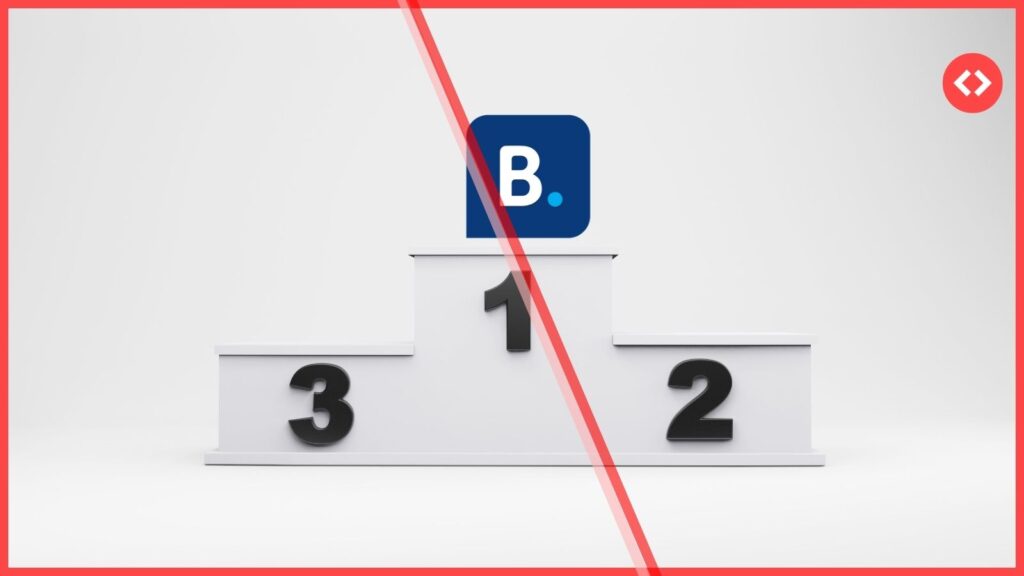Booking.com delivered one of its strongest short-term rental quarters of the year in Q3 2025, and the shift was noticeable not just in the numbers, but in the company’s tone. During the earnings call, leadership spoke with a confidence, and at times, a sharpness, that we haven’t heard in a while.It was the sound of a platform whose long-term bets are finally aligning with the market.
After years of trailing Airbnb and Vrbo in certain regions, especially the United States, Booking.com appears to be entering a phase where structural tailwinds are breaking in its favor. The platform’s alternative accommodations business continues to accelerate, U.S. brand awareness is rising, and Booking’s multi-vertical strategy now feels much more relevant to how travelers book.
Here’s what’s sitting beneath that confidence.
Alternative Accommodations Are Driving the Platform Forward
Booking.com has been building toward this moment for more than a decade. Long before Airbnb tried to integrate hotels or Vrbo attempted to broaden beyond classic vacation homes, Booking was strengthening the operational plumbing needed to support millions of rooms and partners across many categories.
Its infrastructure, connectivity partners, multilingual supply teams, structured property data, standardized content workflows, partner hubs, and dual merchant/agency models, was originally built for hotels. But infrastructure built for hotels scales extremely well into vacation rentals. When AA demand began to accelerate again, Booking could absorb supply with little friction.
And the supply is coming.
- Q1 2025: AA bookings up 12% YoY; AA made up 37% of room nights; 8.1 million total AA listings.
- Q2 2025: AA room nights up 10% YoY; AA still 35% of total room nights despite strong hotel growth.
- Q3 2025: AA listings reached 8.6 million, growing ~10% YoY, and AA room nights once again outpaced total room night growth.
This three-quarter pattern shows AA isn’t a side story. It’s the spine of Booking’s 2025 performance.
Airbnb and Vrbo are still strong brand leaders in the category they helped define. But Airbnb is entering a more mature phase in the U.S., where supply and demand feel flatter in some metros. Vrbo remains tightly tied to its legacy strengths: multi-bedroom, week-long family trips, which makes sudden shifts in length-of-stay or domestic travel patterns hit harder. Booking, by contrast, has room to expand from a smaller U.S. base and a far more balanced global footprint.
The U.S. Market Is Beginning to Tilt in Booking.com’s Favor
For years, Booking’s U.S. presence was steady but unexceptional. Airbnb dominated culturally, and Vrbo effectively owned the family travel narrative. Booking was best known as a hotel platform, not a place to find vacation homes.
That dynamic is changing.
Booking.com’s CEO Glenn Fogel highlighted a wave of U.S. brand awareness this quarter, including anecdotal mentions of friends texting him after seeing Booking.com ads during major sporting events. This wasn’t a throwaway remark. Booking has spent the last 18 months investing aggressively in U.S. creative: the Super Bowl campaign with the Muppets, celebrity-led TV spots, and strategic placements in broadcast sports that mirror Vrbo’s earlier successes with Nick Saban.
These efforts are coinciding with subtle but meaningful changes in how Americans travel:
- Shorter stays are becoming the norm, which erodes Vrbo’s advantage in week-long vacations.
- Price sensitivity remains high, and Airbnb’s elevated pricing perception, combined with cleaning-fee frustration, is not helping its case.
- “Value-flexible” travelers (especially last-minute bookers) are giving Booking.com a serious look, because its brand does not carry the same fee-fatigue baggage.
- In regulated cities like New York, Los Angeles, or San Francisco, Booking remains usable thanks to hotels, aparthotels, and hybrid accommodation formats.
Individually, these shifts are small. Collectively, they create a path for Booking.com to expand share in the U.S. without needing to displace Airbnb or Vrbo outright. For professional managers who want channel diversification, these signals matter.
Booking’s Multi-Vertical Travel Stack Gives It Room to Pull Ahead
Another reason Booking.com sounds more assured: it is the only player in this competitive set that already operates a mature, fully integrated multi-vertical travel ecosystem.
- Flights.
- Stays.
- Attractions.
- Car rentals.
- Airport transfers.
- Payments.
- Loyalty.
All stitched together with years of contracting, data infrastructure, and cross-vertical logic.
Airbnb and Vrbo are building toward this, but from different, and less structurally comprehensive, starting points:
- Airbnb relaunched Experiences, reintroduced Hotels, and rolled out Services. It is expanding its universe, but moving cautiously with a ‘pilot’ approach.
- Vrbo benefits from Expedia Group’s giant travel stack, but the experience is still spread across brands, not fully unified within Vrbo.
Booking’s head start matters because multi-vertical travel ecosystems compound over time. When Fogel talked this quarter about building “an intelligence layer” where trip elements relate naturally to each other, that wasn’t hypothetical. It was a continuation of the Connected Trip vision the company has been shaping for years.
A traveler who comes in through a flight search and then receives a Genius perk on a vacation rental is a traveler who may never leave the Booking ecosystem. That’s the advantage: the platform can catch demand from multiple entry points, then route it toward stays, including alternative accommodations.
Loyalty Is Becoming a Structural Differentiator
The Genius program may be Booking.com’s most underestimated asset in the STR space. Levels 2 and 3 now account for more than 50% of room nights, and these travelers:
- Book more frequently
- Cancel less
- Tend to book direct
- Spend more across travel categories
- Stay both in hotels and vacation rentals
Airbnb still does not offer a loyalty program.
Vrbo participates in One Key, but the rewards are relatively diluted for hosts compared to hotels and do not yet offer the multi-vertical pull that Genius does.
For STR managers, this matters. Booking’s loyal guests behave more predictably, fill last-minute demand, and book across multiple regions and seasons. In a year of travel shifts, predictability itself is a competitive edge.
Diversification Insulates Booking.com From the Regulatory Shocks
Regulation is no longer a niche risk. In cities like New York, Barcelona, Florence, Amsterdam, and London, regulatory shifts have either constrained supply, altered booking flows, or triggered significant operational changes for STR-heavy platforms.
Booking.com is insulated. Not entirely, but meaningfully.
Its supply stack includes:
- Hotels
- Guesthouses
- Hostels
- B&Bs
- Aparthotels
- “Soft hotels” and hybrid formats
- Alternative accommodations
This mix means the platform remains fully functional even when short-term rental regulations tighten. In highly regulated markets, travelers may still use Booking.com, they simply book different accommodation types.
That stability helps Booking maintain traffic and booking flows even when STR availability fluctuates, a resilience neither Airbnb nor Vrbo can fully match today.
Payments and Payouts Are No Longer a Weakness
Historically, Airbnb’s payout experience was one of its biggest competitive strengths. Stable payouts, predictable timelines, and solid fraud prevention created trust with professional managers. Meanwhile, Booking’s old agency model, and region-specific payout quirks, often frustrated operators.
That is changing.
Booking’s merchant model now covers roughly two-thirds of gross bookings. The company has been clear that payments are a central component of the Connected Trip infrastructure, not just a transactional hurdle. For professional managers, this means:
- faster, more reliable payouts
- clearer timelines
- smoother multi-product bookings
- better dispute and chargeback handling
- a simpler path to onboarding
For operators previously hesitant to adopt Booking because of payment issues, these improvements change the equation. And with many PMs actively diversifying away from single-channel dependency, Booking’s timing here is advantageous.
The Confidence Makes Sense, And STR Managers Should Pay Attention
Booking.com didn’t sound more confident in Q3 by accident. It is seeing multiple forces, some subtle, some structural, converging at once:
- alternative accommodations are growing quarter after quarter
- U.S. brand visibility is rising
- multi-vertical integration is paying commercial dividends
- loyalty is driving cross-category repeat behavior
- diversification shields the platform from regulatory volatility
- payments are no longer a vulnerability but a strength
This doesn’t imply Airbnb is weakening or Vrbo’s markets are shrinking. Both companies made significant strategic moves this year, and both remain extremely important channels for STR managers.
But Booking enters 2026 with a clearer runway than it has had in years. It can compete in the U.S. more meaningfully, convert global demand more efficiently, and deliver professional managers a more stable, more diversified, and increasingly loyal pool of guests.
For operators, this is not the moment to overlook Booking.com. The OTA landscape is shifting, and Booking’s momentum suggests its role in professional channel strategy will matter far more than it did even three years ago.
Uvika Wahi is the Editor at RSU by PriceLabs, where she leads news coverage and analysis for professional short-term rental managers. She writes on Airbnb, Booking.com, Vrbo, regulations, and industry trends, helping managers make informed business decisions. Uvika also presents at global industry events such as SCALE, VITUR, and Direct Booking Success Summit.








